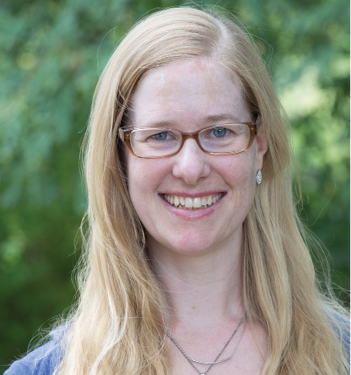Christa Haverly, Postdoctoral Research Fellow, Northwestern University

Culturally responsive teaching is responsive to students’ lived experiences, cultural repertoires of practice, linguistic resources, and other ways of knowing and being in this world. Here I take up race, recognizing that this is just one part of the culturally responsive story. To that end, though I am cautious to center another White voice in a conversation about culturally responsive teaching, I offer the following narrative as a critical reflection on my racialized positionality in hopes that it creates space for dialogue with and among White researchers while continuing to listen to and learn from scholars of Color (including from this spotlight).
As an ‘urban’ elementary school teacher, for years I felt like teaching was my ‘service.’ Teaching in communities with low-income families, recent immigrants, and people of Color was my way of doing service in places that I viewed as needing support. This motivation was partially informed by my faith, and at the same time it was informed by my unexamined Whiteness. As such, it was a pernicious motivation disguising a sense of White superiority (often referred to as ‘White savior complex,’ (Cole, 2012)).
When I entered graduate school to pursue my Ph.D. in teacher education, I had a lot to learn about culturally responsive teaching, but more so about my positionality. Ladson-Billings’ (2006) notions of education debt and Sleeter’s (2001) straight talk about Whiteness surprised and intrigued me, taking a different tone and perspective from my former trainings in Payne’s (2005) culture of poverty (which I learned was perpetuating oppression by advancing a deficit framework). This drew me into an ongoing process of critically examining what I thought I knew about race and racism in this country, what it means to ‘serve,’ and for whom.
While I started my career considering my work as a form of service, I now consider my work around culturally responsive science teaching as a responsibility. This responsibility is informed by my knowledge of my complicity in White supremacy; the advantages I have because of systemic structures and ideologies which benefit people identified as White; and the discrimination and dangers experienced by my Black and Brown friends, loved ones, colleagues, neighbors, and students because of systemic structures and ideologies which oppress those identified as people of Color. For me, to not engage in this work would be to take a stance of avoidance resulting in further harming people of Color. However, to engage in this work requires that I continue doing work on myself, critically examining my Whiteness in all parts of my life.
Recognizing that we are all in a ‘constant state of becoming,’ I encourage other researchers to join me in continually and critically reflecting on our positionality in our work through:
- interrogating our teaching, research, and interpersonal practices for biases,
- learning about culturally responsive science teaching, including from this spotlight, and
- reading more literature by scholars of Color.
For starters, consider these texts on Whiteness, race, and racism in the education system:
- DiAngelo, R. J. (2018). White fragility: Why it's so hard for White people to talk about racism. Boston: Beacon Press.
- Joseph, N. M., Haynes, C., & Cobb, F. (Eds.). (2015). Interrogating Whiteness and relinquishing power: White faculty's commitment to racial consciousness in STEM classrooms. New York: Peter Lang.
- Love, B. L. (2019). We want to do more than survive: Abolitionist teaching and the pursuit of educational freedom. Boston: Beacon Press.
- Matias, C. E. (2016). Feeling white: Whiteness, emotionality, and education. Rotterdam: Birkhäuser Boston.
- Tatum, B. D. (2017). Why are all the Black kids sitting together in the cafeteria?: And other conversations about race. New York: Basic Books.
References
Cole, T. (2012, March 21). The white-savior industrial complex. The Atlantic.
Ladson-Billings, G. (2006). From the achievement gap to the education debt: Understanding achievement in US schools. Educational Researcher, 35(7), 3-12.
Payne, R. K., & Blair, T. (2005). A framework for understanding poverty. Highlands, TX: aha! Process.
Sleeter, C. E. (2001). Preparing teachers for culturally diverse schools: Research and the overwhelming presence of whiteness. Journal of Teacher Education, 52(2), 94-106. doi:10.1177/0022487101052002002
---
Any opinions, findings, and conclusions or recommendations expressed are those of the author(s) and do not necessarily reflect the views of the National Science Foundation.